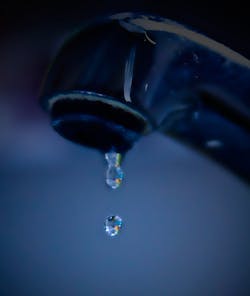Report: Sustainable infrastructure solutions lie in public-private partnerships
PHILADELPHIA, PA, NOV 2, 2017 -- A special report issued by Veolia North America and the Wharton School's Initiative for Global Environmental Leadership (IGEL) details the demonstrated success and future potential for public-private partnerships (P3s) to provide sustainable solutions for the nation's infrastructure needs. The report highlights how the P3 framework can be applied to keep up with contemporary fiscal and climate concerns as America braces for a $3.6 trillion bill for infrastructure upgrades.
In addition to traditional financial considerations, communities now require more sustainable infrastructure in the face of increasingly extreme weather and climate change. This includes utilities designed to support communities that face new economic, social and environmental challenges over time.
Cities worldwide are increasingly turning to private-sector partners for the long-term investment and operational expertise these new solutions demand.
"With the number and size of P3s increasing each year and major infrastructure legislation anticipated on Capitol Hill, now is the time to focus on growth potential and expansion of such successful partnerships," said John Gibson, executive vice president and chief operating officer of municipal and commercial businesses at Veolia North America. "Veolia and IGEL's report offers examples of projects representative of the opportunities for P3s in the sustainable infrastructure industry."
From the report:
Preventing Wastewater from Going to Waste: In Honolulu, Hawaii, a state-of-the-art wastewater reclamation facility has reduced ocean pollution and increased the availability of drinking water, thanks to a 20-year, $140 million P3 agreement allowing the city to save up to $35 million over the course of the partnership. Water reuse projects are becoming increasingly popular across the country as a way to mitigate the effects of drought and boost water supplies in communities with limited access to freshwater.
Green Steam for Clean Energy: In Philadelphia, new investment in combined heat and power or cogeneration has provided the city with sustainable utility infrastructure since 2012. Today, this partnership provides electricity, "green steam" and now a new chilled water plant for the University of Pennsylvania- providing resiliency, saving money, and reducing the school's greenhouse gas emissions.
Learn more at https://igel.wharton.upenn.edu/ or www.veolia.com.
